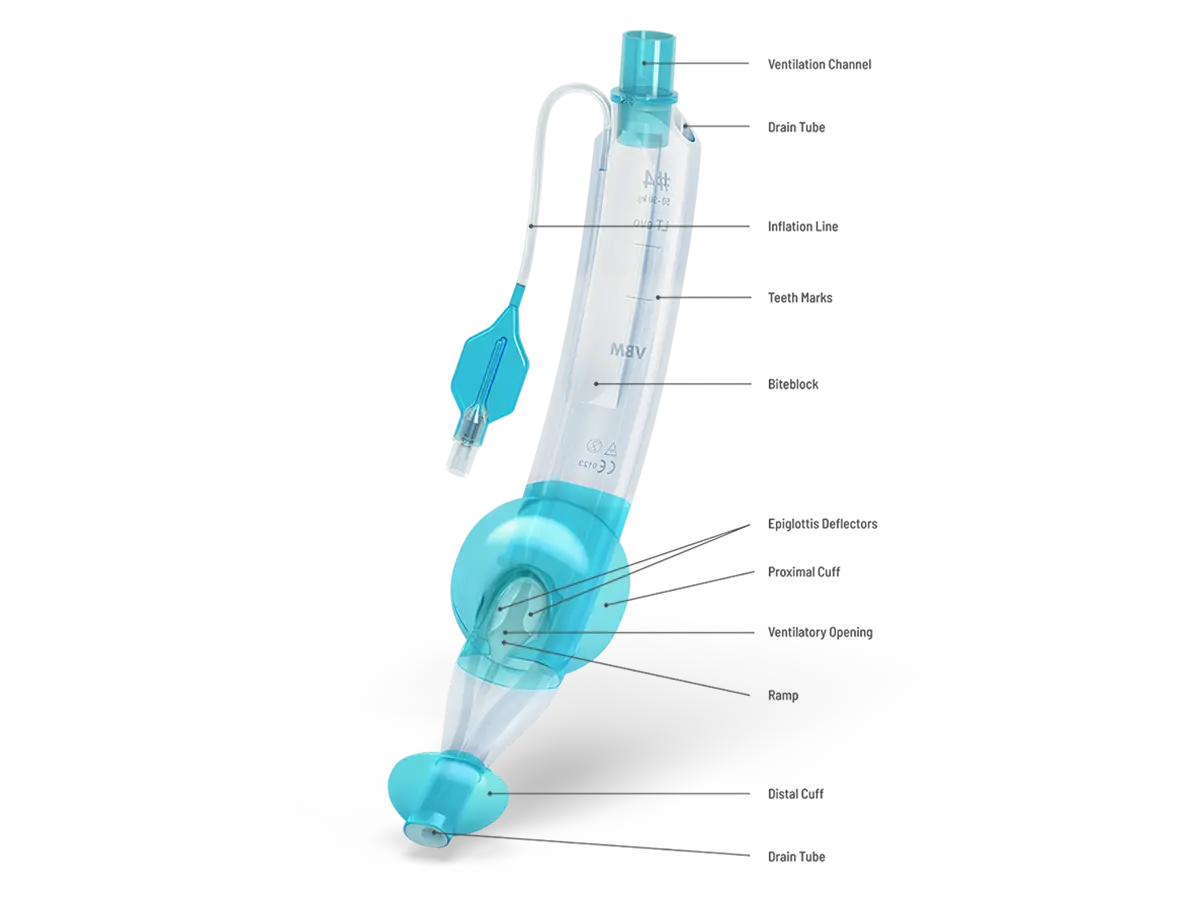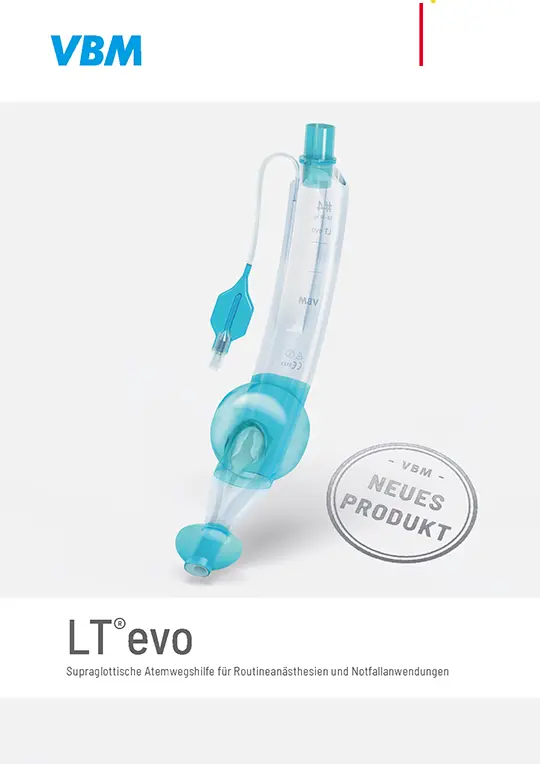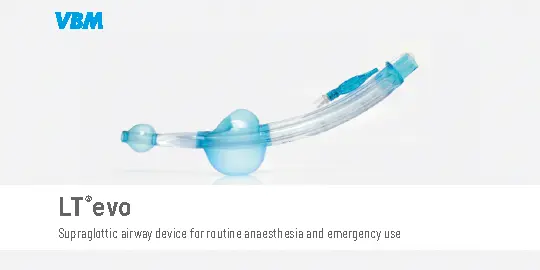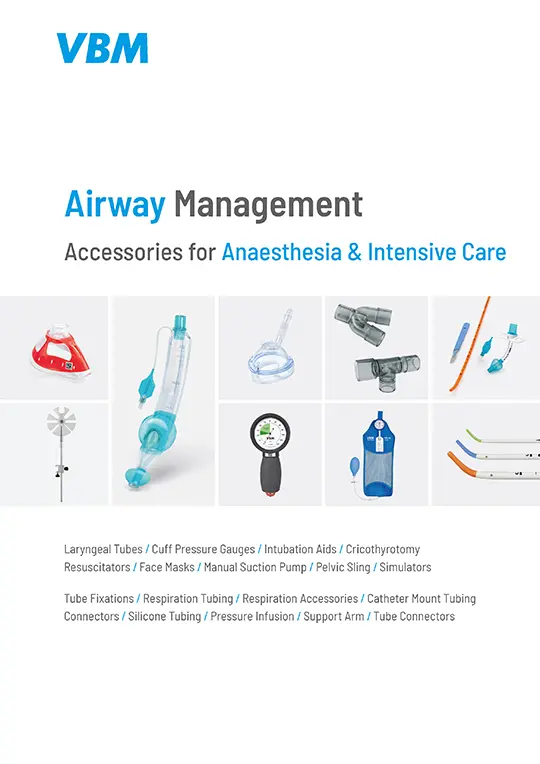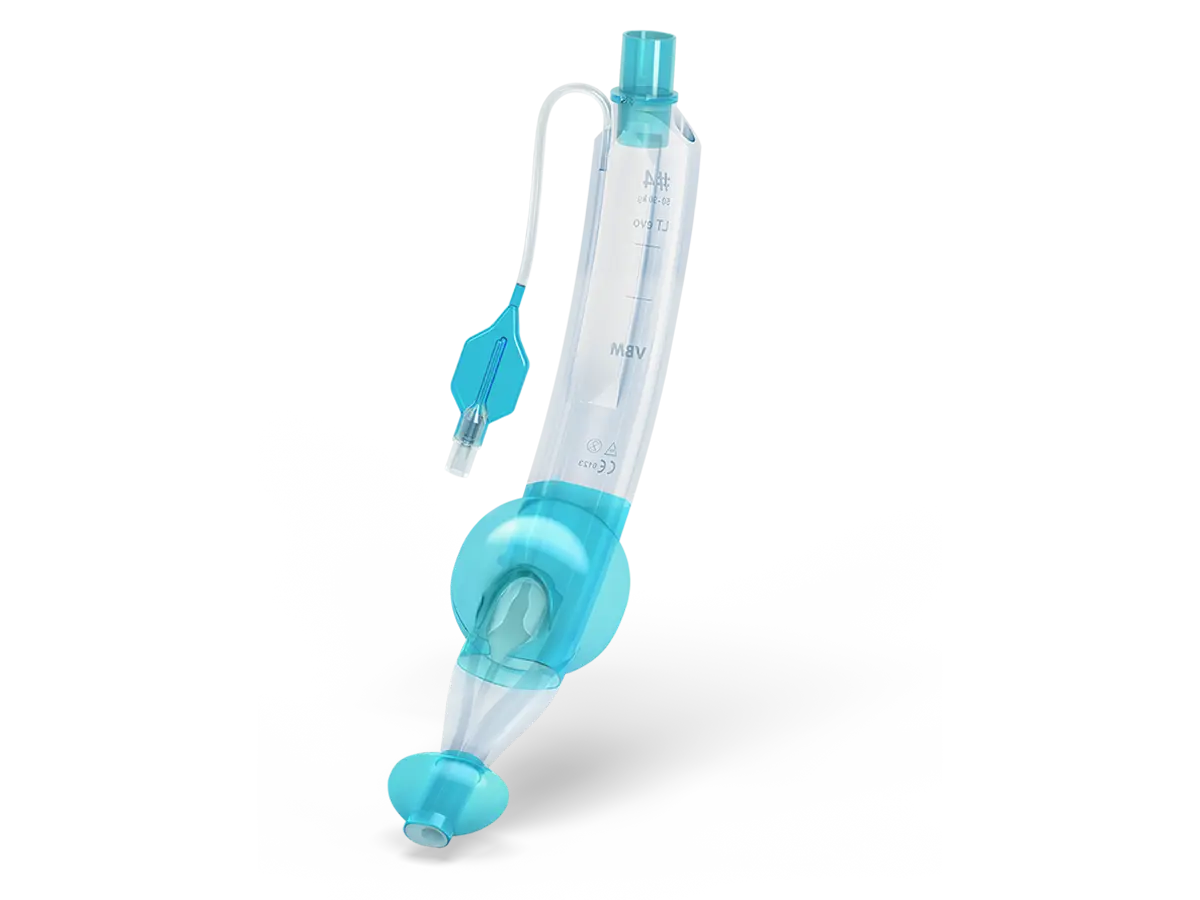
LT®evo
Supraglottic airway device for routine anaesthesia and emergency use
LT®evo is a 2nd generation supraglottic airway device to temporarily secure the airway during routine anaesthesia, difficult airway management and cardiopulmonary resuscitation.

The Beginning of the evolution
Building on the legacy of the original Laryngeal Tube, our latest innovation represents the next step in airway management – the LT®evo.
This evolution introduces a completely new production process that enhances manufacturing efficiency without compromising quality. The LT®evo features a larger ventilation channel, designed not only to improve airflow but also to allow intubation through the tube if needed. Additionally, softer, more flexible materials have been incorporated to maximise patient comfort during use. Designed to expand its role beyond emergency use, the LT®evo serves as a reliable, easy-to-insert airway device ideal for routine anaesthesia across a wide range of patients.
——Specifications
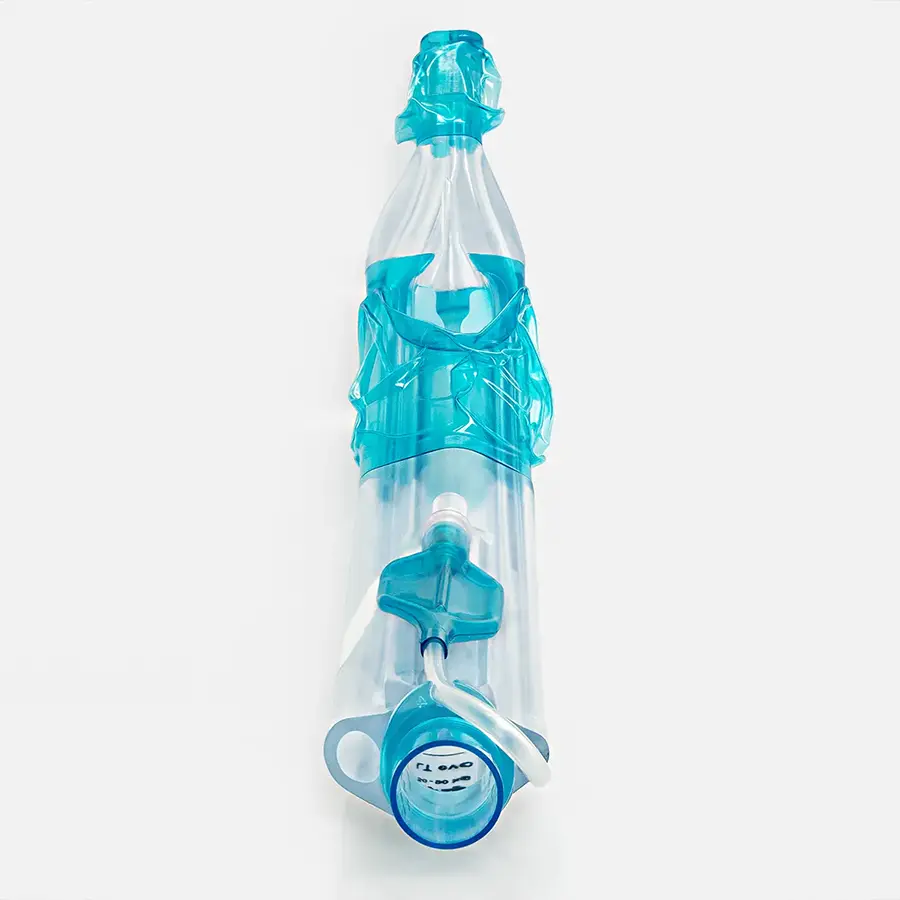
Anatomical Design
The curvature of the LT®evo fits the contours of the relaxed anatomy of the upper airway and the oval cross-section contributes to guide the device through the hypopharynx
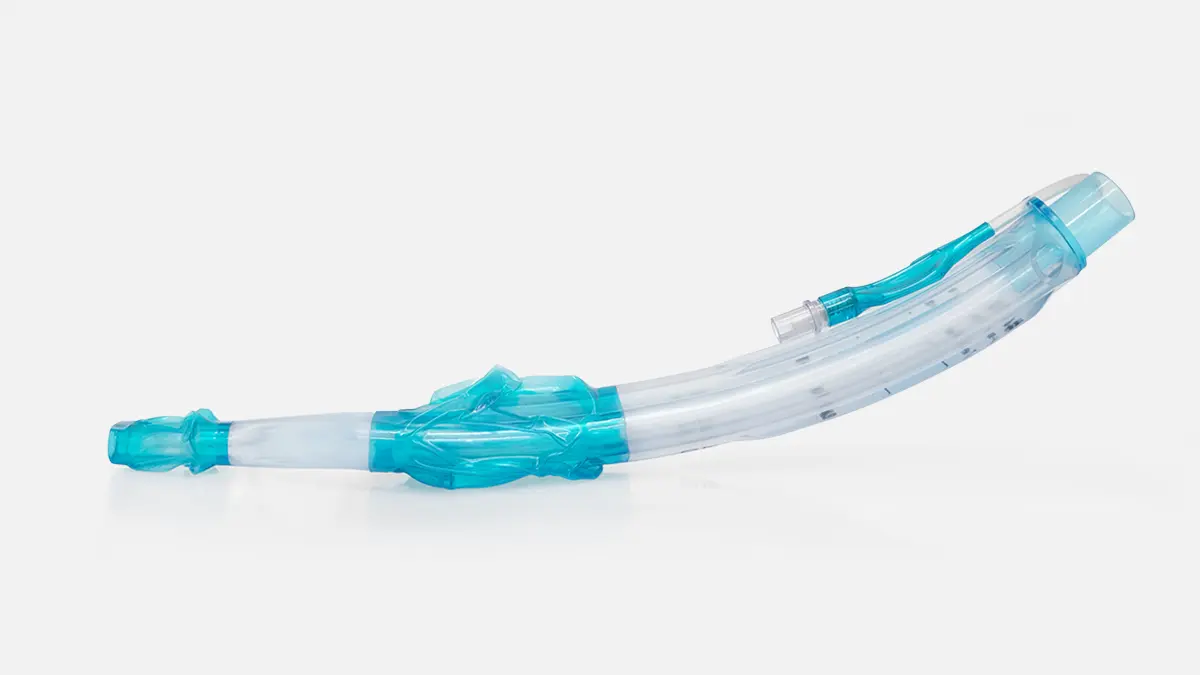
Ease of insertion
The conical distal tip and the slim oval cross-section contribute to overcome the resistance to placement. The LT®evo follows the hard palate and enters the hypopharynx before the distal end finally rests in the oesophageal opening.
The LT®evo is suitable for a wide range of patients (minimum interdental gap 19 mm), from routine anaesthesia to emergency use.
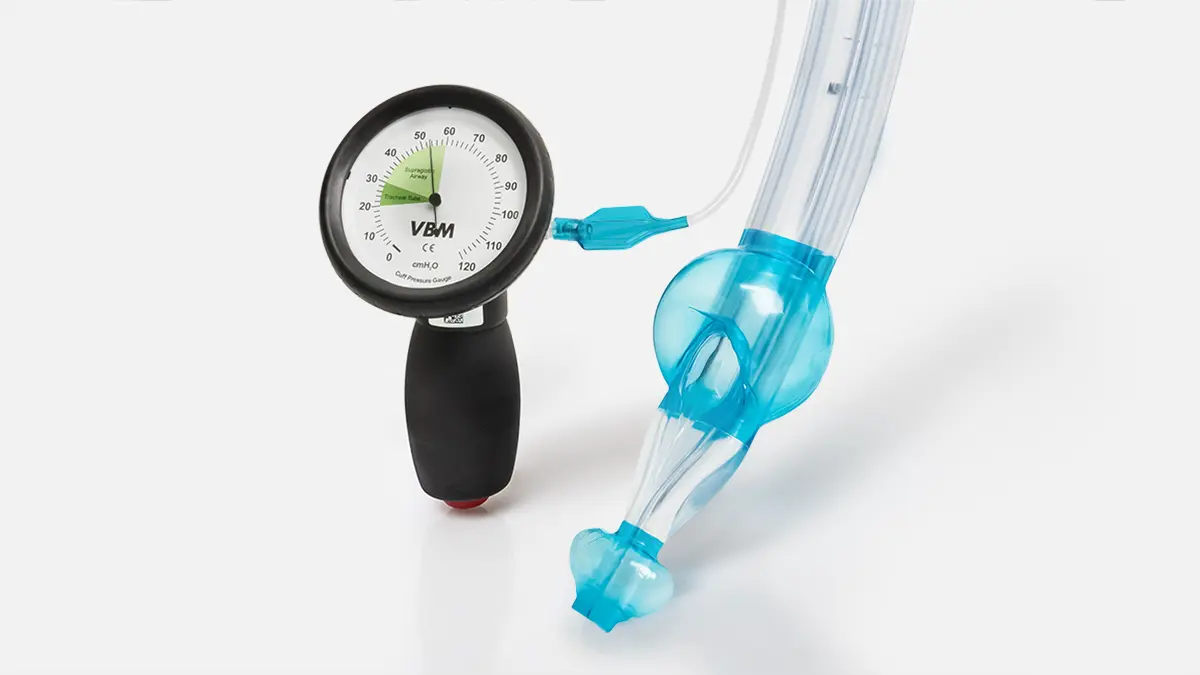
Optimal sealing mechanism
Efficient ventilation as well as active prevention against regurgitation and gastric insufflation are paramount to a successful airway management (1).
The two cuff design strategy of the LT®evo is unique with the proximal cuff forming a sealing above the respiratory tract and the distal cuff securing the gastrointestinal tract.
The two thin-walled cuffs with specific individual shapes are inflated at the same time to obtain an efficient oropharyngeal and oesophageal sealing at a low cuff pressure (< 60 cm H2O).
(1) Nolan J. et. al., Advanced Life Support, 5th Ed., Resuscitation Council UK, 2006, p. 46
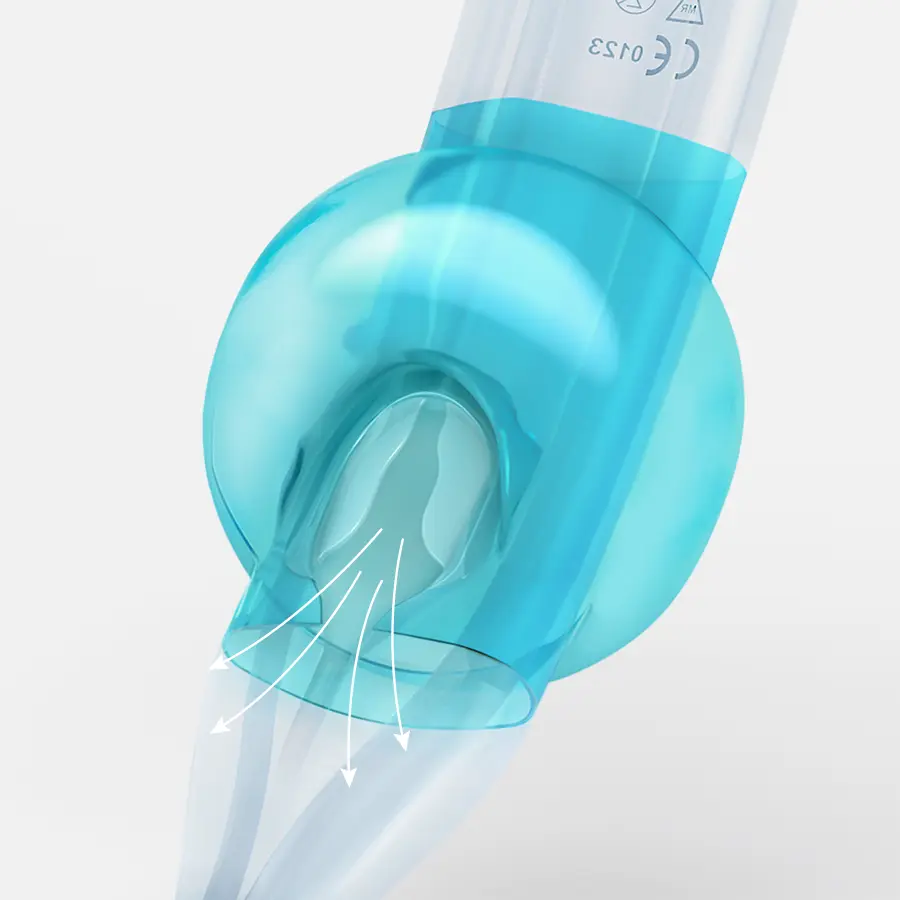
Efficient ventilation
Between the two cuffs, the large ventilatory opening allows an optimal flow for gas exchange. Thanks to its excellent oropharyngeal and oesophageal sealing, the LT®evo is indicated for all supraglottic airway management.
The special epiglottis deflectors along the ventilatory opening are reducing the risk of the epiglottis folding into the ventilation channel.
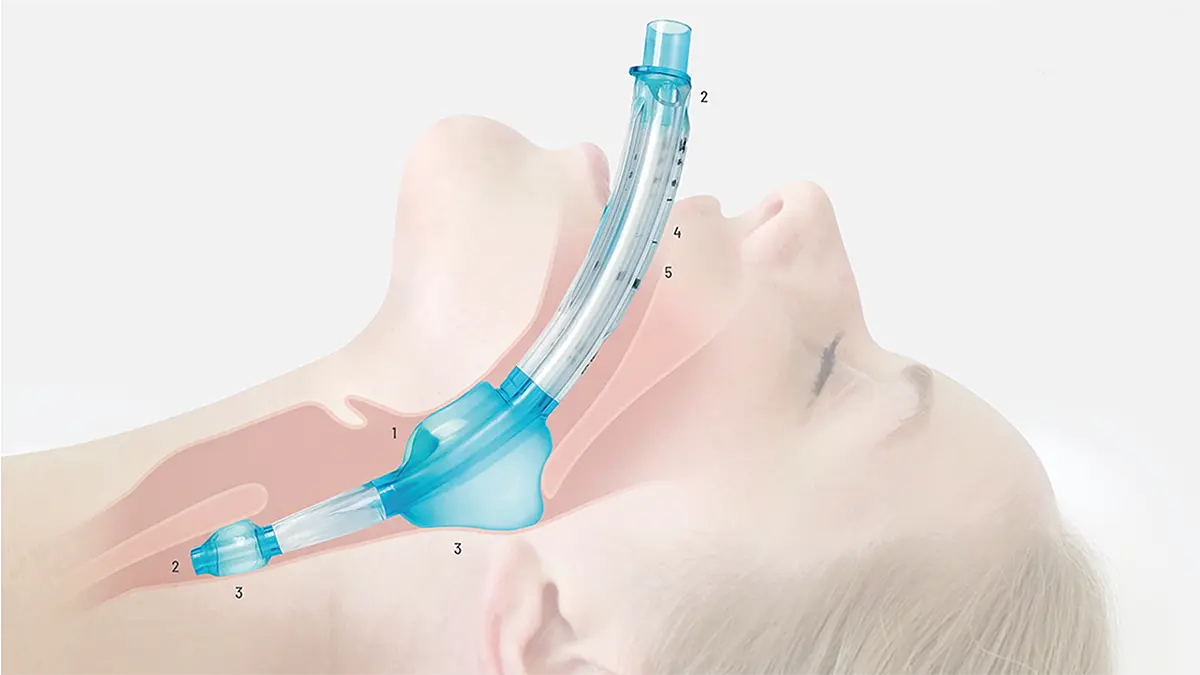
Position
LT®evo in situ - correct position
1 Large ventilatory opening to allow an optimal flow for gas exchange
2 Drain tube to confirm correct placement and to reduce the risk of aspiration
3 Two thin-walled cuffs to obtain an efficient oropharyngeal and oesophageal sealing at a low cuff pressure (< 60 cm H2O)
4 Teeth marks as indicator for depth of insertion and for repositioning
5 Built-in biteblock to prevent damage to the device and airway obstruction during biting
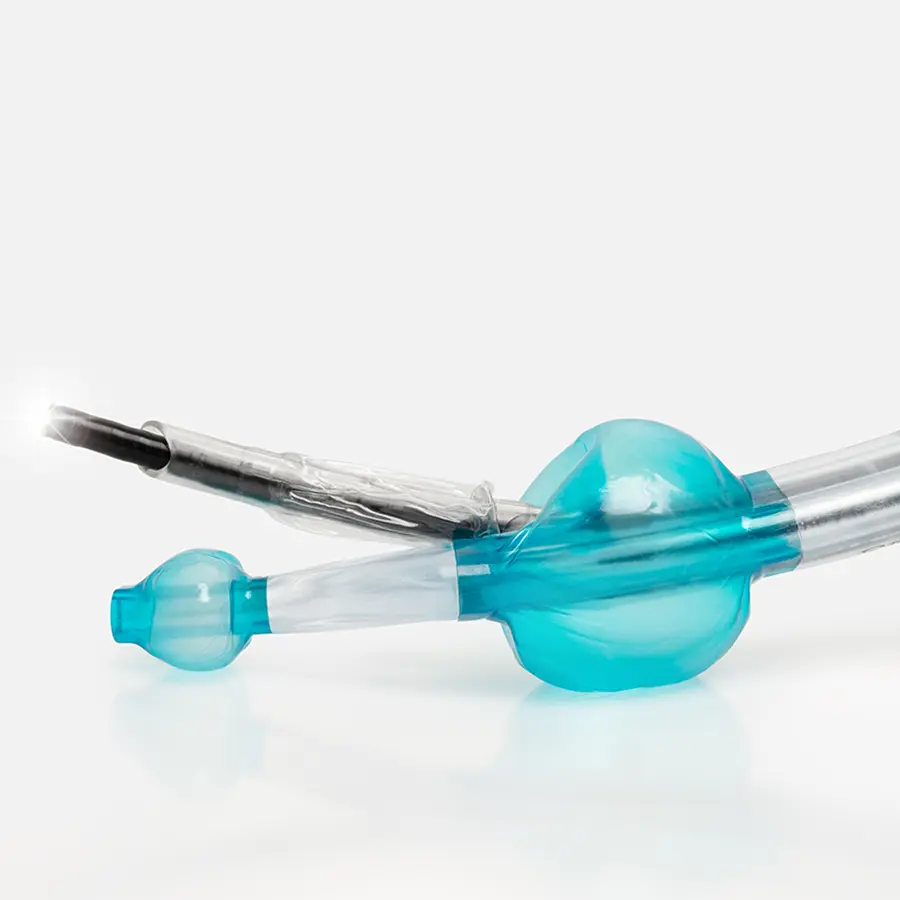
Tracheal Intubation
The large ventilation channel enables the passage of a regular tracheal tube. The integrated ramp at the outer curve of the ventilatory opening is directing the tracheal tube towards the glottic inlet. It is recommended to attempt tracheal intubation with fiberoptic guidance.
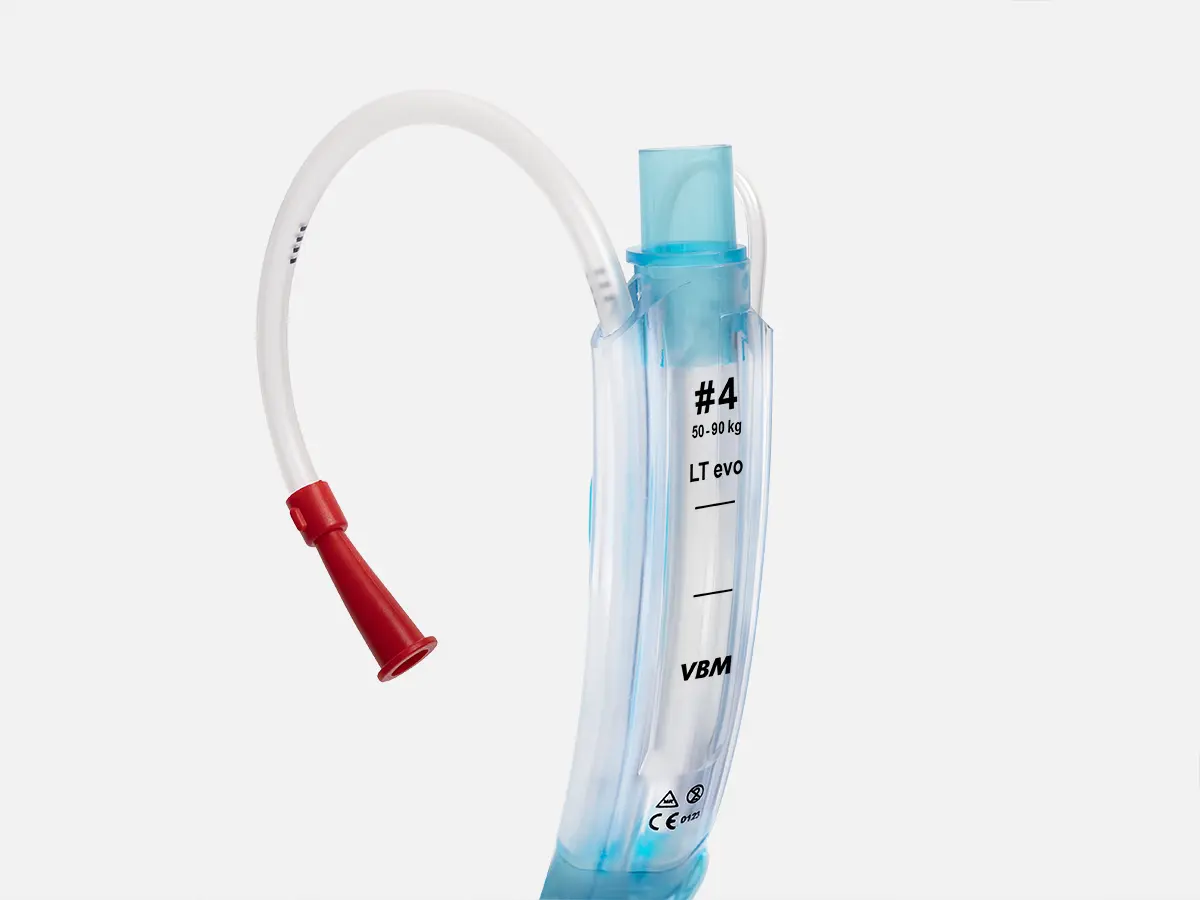
Gastric Access
Efficient protection against regurgitation relies on a large capacity of fluid channeling and evacuating together with an optimal oesophageal sealing (2). The LT®evo allows the usage of large size gastric tubes (up to 18 Fr for LT®evo #4 and #5).
The distal cuff rests in the oesophageal opening and forms an efficient sealing that serves the purposes for routine anaesthesia and emergency use. Inserting a gastric tube without resistance may be helpful to confirm correct placement of the LT®evo.
(2) Brimacombe J. R., Laryngeal Mask Anesthesia, 2nd Ed., Saunders, 2005 – Chapter 5 – Seal with the respiratory and gastrointestinal tracts.
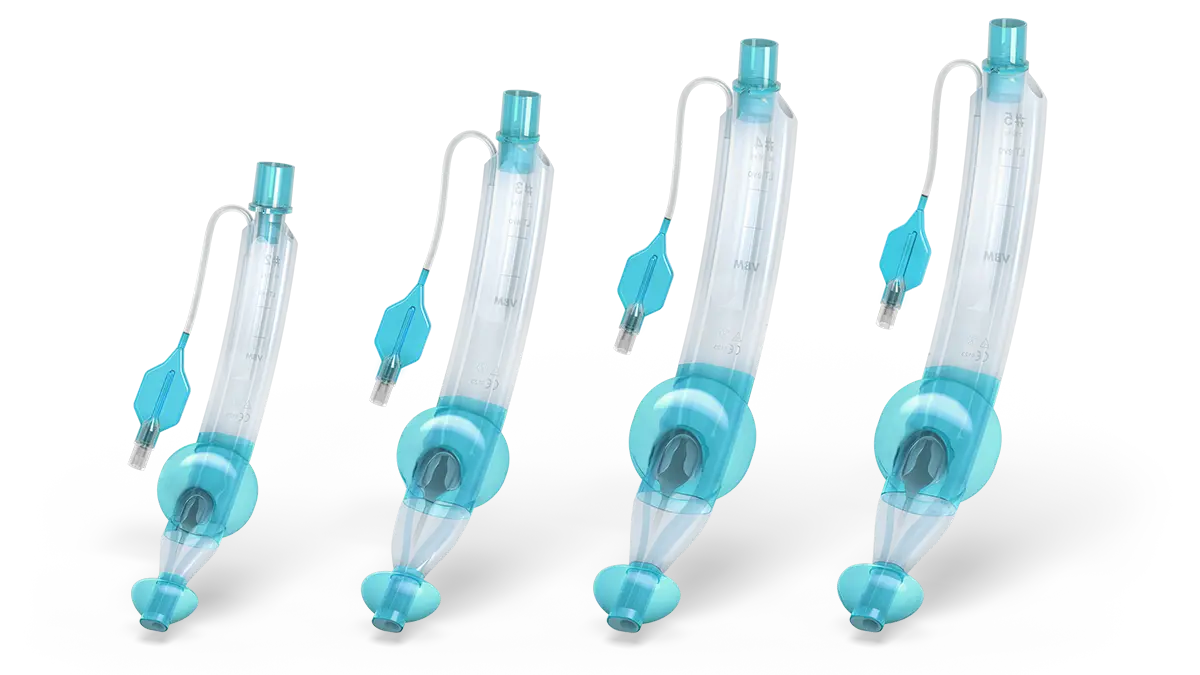
| Sizes LT®evo | Patient Weight |
| #2 | 10 – 25 kg |
| #3 | 25 – 50 kg |
| #4 | 50 – 90 kg |
| #5 | > 90 kg |
——Application Videos
——Additional Information
——Related Topics & Products
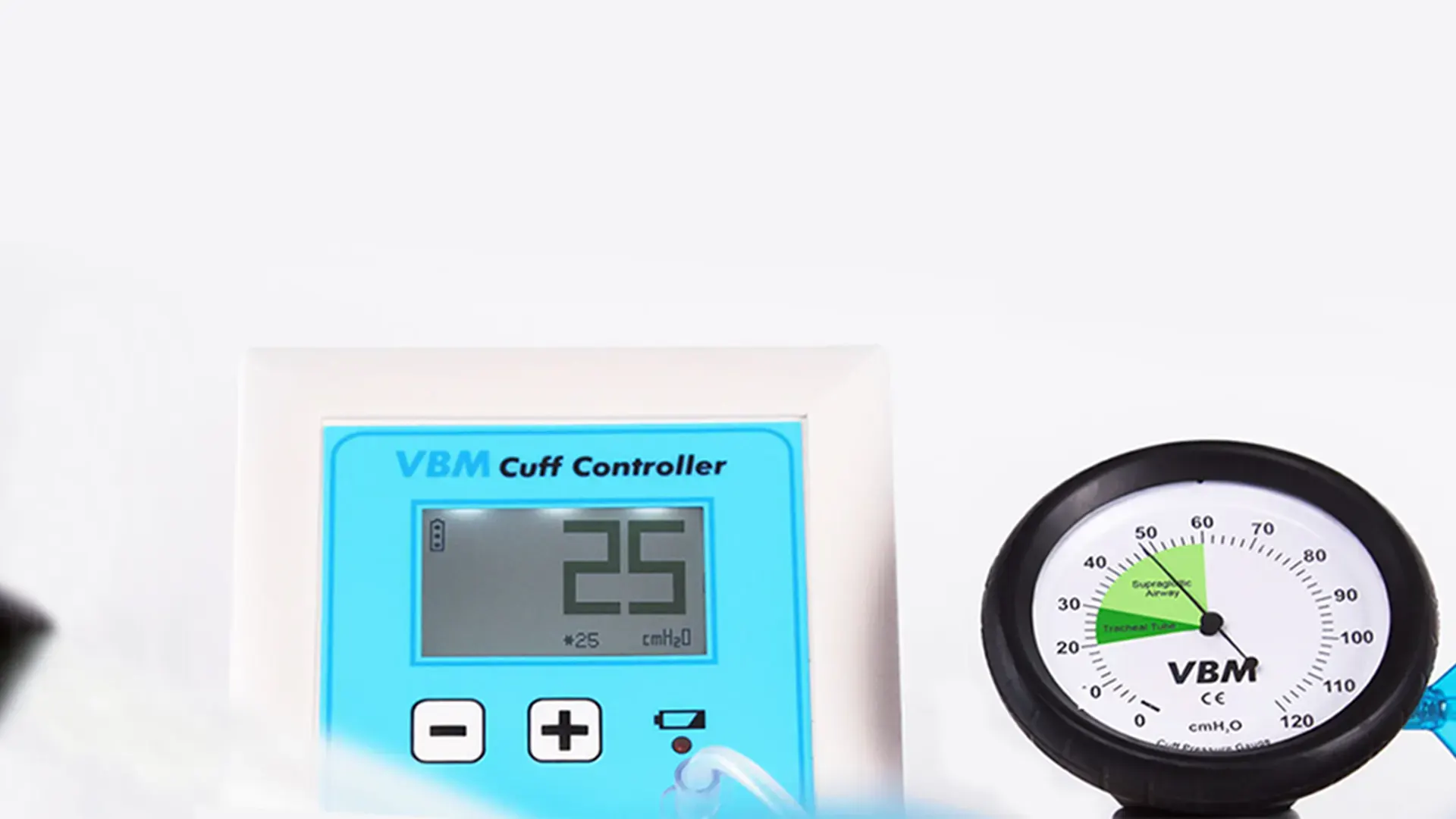
Cuff Pressure Gauges
WEB001_PID-01-02-10_AA_EN

